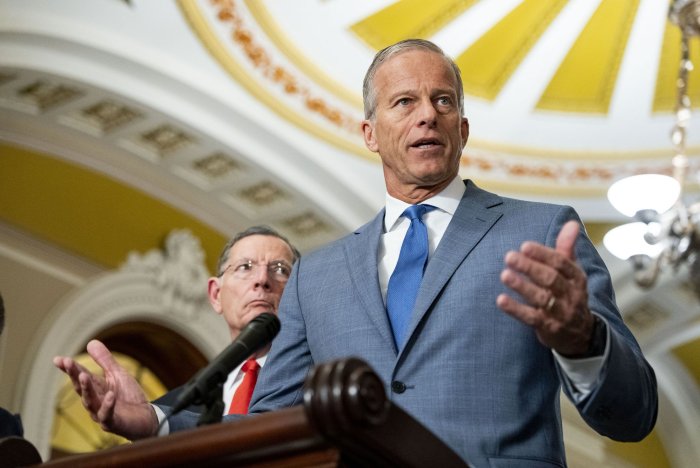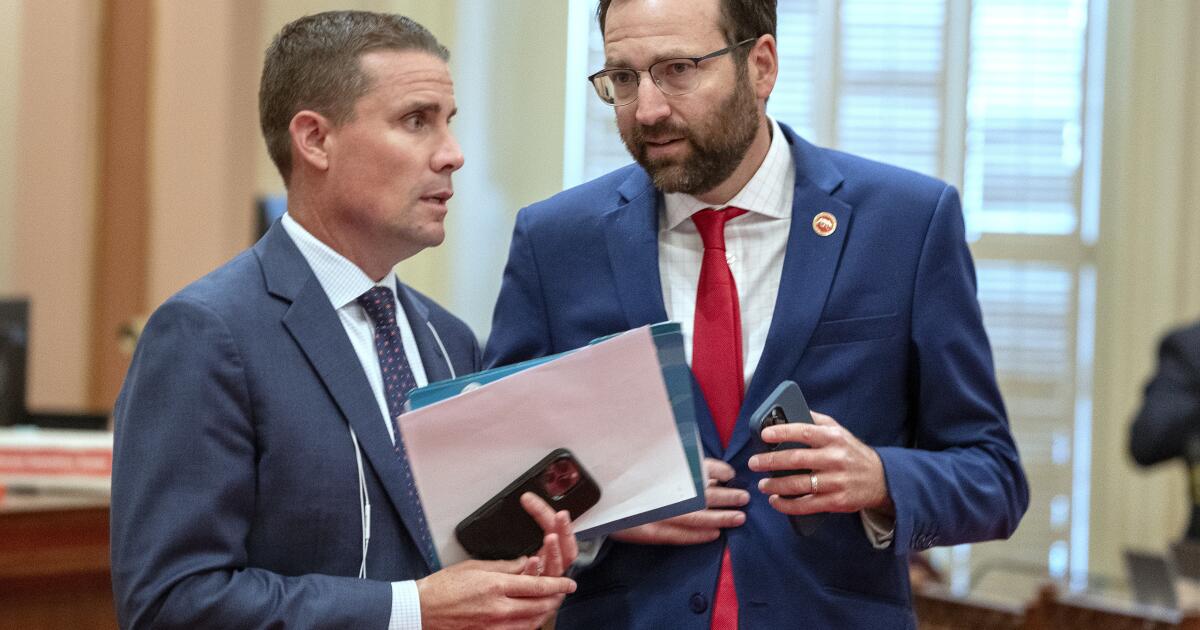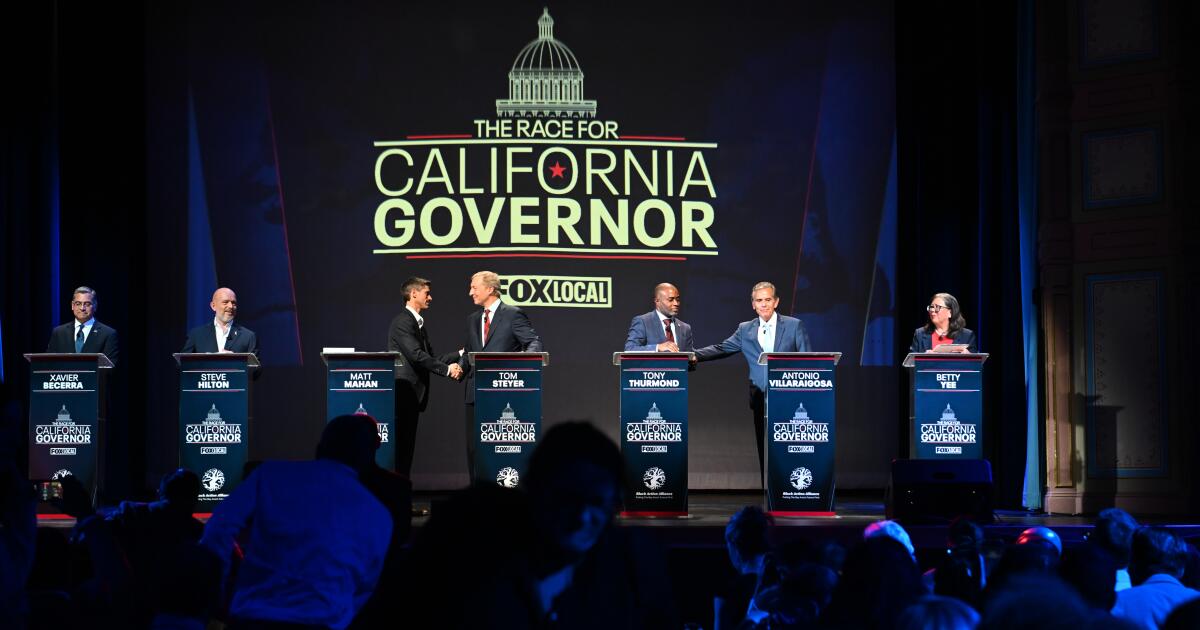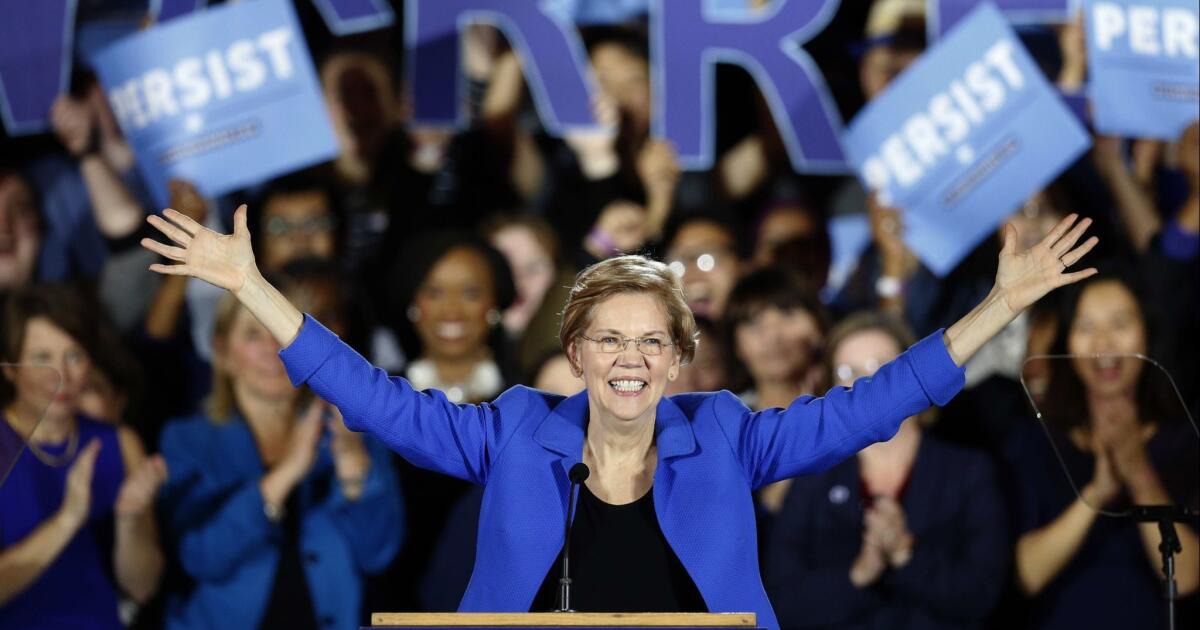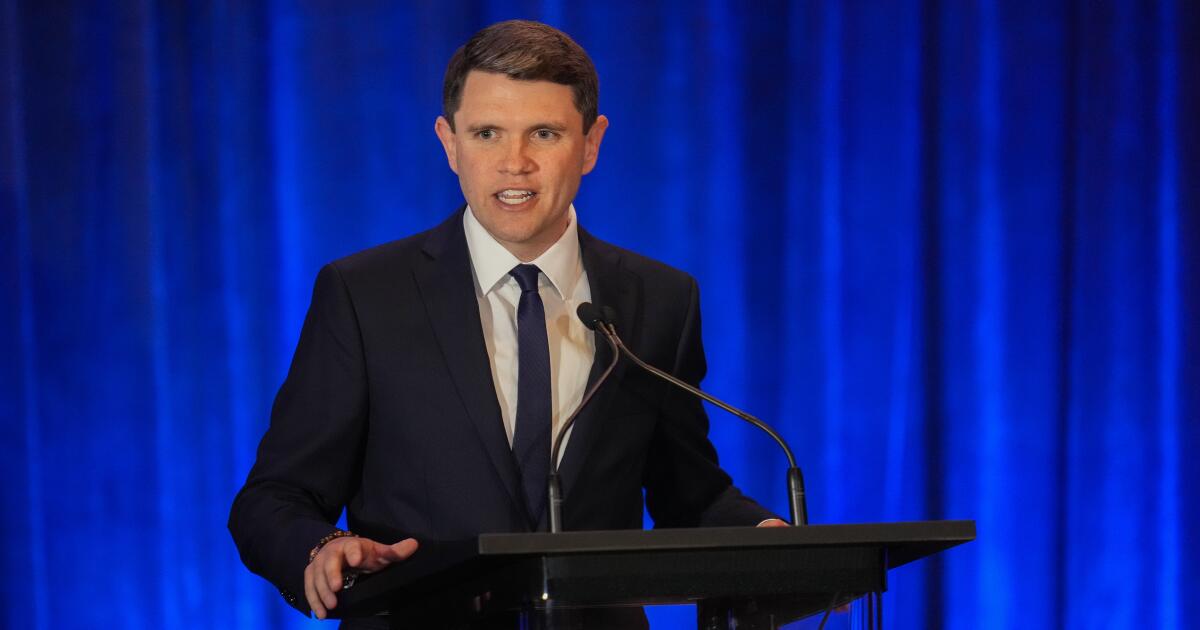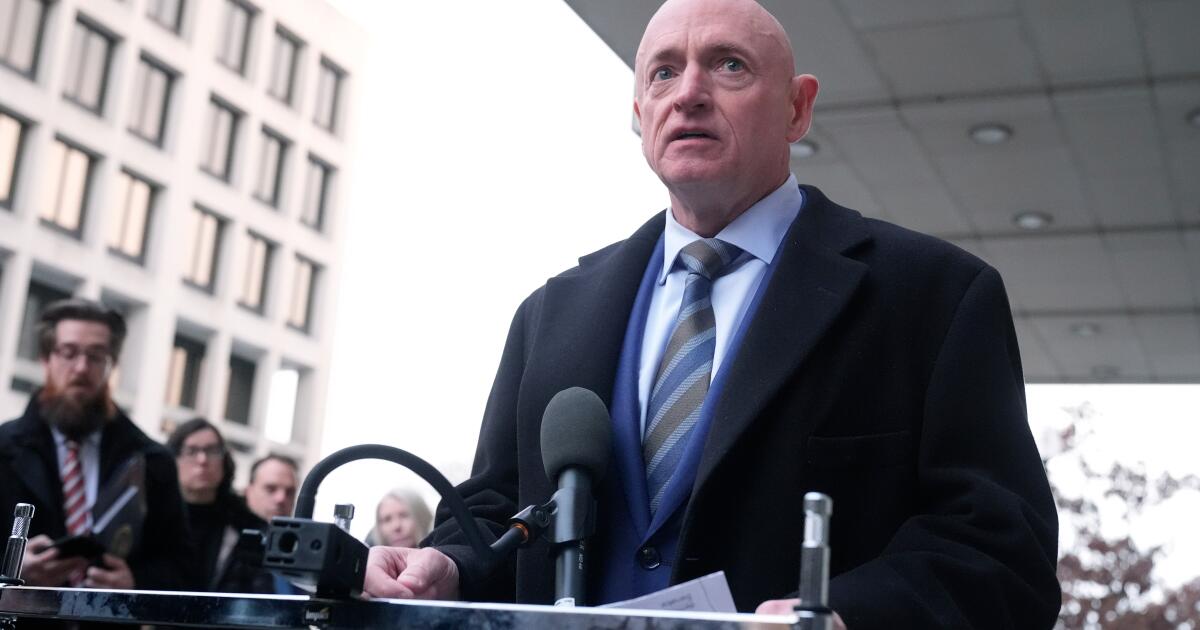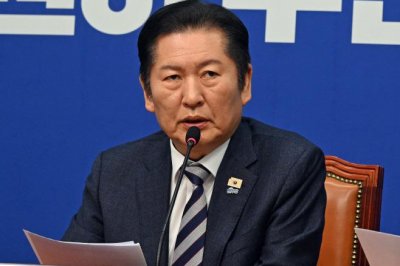CHICAGO — Before she had toppled the moneyed and the mighty, back when perhaps a dozen people thought she had a chance to be a U.S. senator, Carol Moseley Braun went to Washington to drum up support for her ragtag campaign.
Waiting in the drafty outer hallways of power, she was treated like a poor relation. And the results were pathetic.
The official gatekeepers of money and political advice simply dismissed Braun and her candidacy for the Democratic Senate nomination from Illinois, recalls Tony Podesta, a college friend who is now is a Washington political consultant. He walked her through receptions, and she got nothing more than a few polite hellos. And although established women’s groups said, “Right on, keep going,” they kept their pocketbooks closed.
“Talk about your underdogs,” Podesta says, laughing. “I couldn’t even find a professional fund-raiser who she could pay to work for her.”
But with no organization, little money and a quintessentially Chicago political title as the Cook County Recorder of Deeds, Braun knocked out a three-term senator, Alan J. Dixon, in the March 17 Democratic primary.
This week, Braun went back to Washington for money and backing. And this time, it was the difference between the Prince and the Pauper.
With the head of the Illinois State Democratic Party in tow, she met with party powerbrokers, including Senate Majority Leader George J. Mitchell of Maine and Massachusetts Sen. Edward M. Kennedy. All are members of the white man’s club she ran against, but the reception was ecstatic.
Such is the nature of power in Washington. Braun had just eliminated one of their entrenched cohorts, “Al the Pal” Dixon, 64, who has been winning elections for 42 years. But now she stands a fair chance of making history as a double outsider: If she wins against Republican nominee Richard Williamson in November, she’ll be the first black woman in the Senate and only the fourth black to serve in that august chamber.
Although she dismisses political post-mortems that credit anything but her determination, there is evidence she was also buoyed by luck, timing and a third candidate, Al Hofeld, a 55-year-old personal-injury attorney who spent $4.5 million of his own personally injuring Dixon in negative TV advertisements.
“I think it’s fair to say that if this were hockey, Hofeld would get an assist,” quips Hofeld’s media consultant, David Axelrod.
Braun may have had one other unlikely man on her team: Supreme Court Justice Clarence Thomas. In fact, without him she might never have entered the race.
Last autumn she was so disgusted by the tone and substance of the Senate Judiciary Committee hearings on Thomas’ nomination to the high court–before and after the allegations of sexual harassment by Prof. Anita Hill–that she decided it was time to break into the men’s club on Capitol Hill.
“I was completely focused on how badly the process had failed,” she says. “If the Senate had done its job right from the start, we all would have been spared the mess. And who were these guys anyway? Where were the women, the minorities and the regular working people?”
She said as much, twice, on a public television talk show and was overwhelmed with letters, phone calls and friends urging her to take on Dixon, who had voted for Thomas. After several meetings, Chicago women activists identified three potential female candidates to challenge Dixon; it was decided that Braun, a University of Chicago Law School graduate who had served 10 years in the state Legislature, had the best qualifications and the best shot.
But she was not a shrinking violet thrust forward into the limelight. Now 44, she has been in the cut and thrust of Chicago politics since her early 20s, and she knew the risks. When a friend warned her that she could be a sacrificial lamb, she reportedly retorted: “If the best my party can do for me is recorder of deeds, then I don’t care about the future.”
With the backing of a coalition of women activists, suburban liberals and her most critical base, blacks throughout Chicago, Braun garnered 38% of the vote compared to Dixon’s 35% and Hofeld’s 28%. Less than two weeks before the upset, Braun had been 12 percentage points behind Dixon.
Hers was a last-minute sprint that came together through a confluence of events, including a television debate in which Hofeld hammered Dixon for his conservative voting record. For the first time, a broader spectrum of the public saw Braun demonstrate her speaking savvy and natural warmth.
In addition, Gloria Steinem came twice to Chicago on Braun’s behalf, attracting attention and contributions to the campaign. And the network of liberals in the suburbs–mostly white women–mounted a word-of-mouth effort to turn Braun into a winner.
In fact, women did well up and down the ballot in the Illinois primary. “I think women, more than men, are convincing elements of change,” says Axelrod. “That will give Carol an edge in November.”
But the “women’s vote” has never materialized consistently in past elections, and it’s still too early to tell whether Braun can make a convincing argument in November that she is a “change agent,” as Washington insiders are fond of saying.
“She’s got to broaden her base beyond blacks and some women and focus, focus, focus, on economic issues,” advise Axelrod and others.
Both Braun and Williamson are positioning themselves as outraged outsiders and setting each other up as a symbol of what catapulted America into an economic morass.
“The fundamental difference between my opponent and myself is that she has made her living for the past 14 years as a career politician and voted 13 times to raise taxes,” says Williamson, 42, a partner in a Chicago law firm who serves on President Bush’s General Advisory Committee on Arms Control.
Speaking from a car phone as he made an eight-city campaign swing last weekend, he added: “I’m not saying it’s always evil to be a career politician–George Bush certainly is. It’s just among the elements that makes differences between my opponent and myself so stark.”
Although exhausted from her sudden status as a political phenomenon–already she’s done “Nightline” and the “Today” show–Braun last week offered her assessment of those differences:
“He’s a typical Reaganite and will have to answer for the policies of the new federalism that screwed up this country. He was part of it.”
Braun doesn’t expect this race to be more challenging than the primary seemed last November–but she does see land mines.
“It’ll be a tough race only to the extent that Williamson (who is white) plays the racial card, directly or subtly, by manipulating symbols like talking about my views on welfare reform,” she says.
Illinois has elected blacks statewide, but many more have been defeated. “If the election was held next week, she’d probably win because of the post-primary euphoria around her,” says Don Rose, a Chicago political consultant. “But we have a way to go, and we don’t know how the wild card–race–plays, and we don’t know how the national ticket plays.”
Williamson insists that he’ll fire anyone in his campaign who uses racism to attack his opponent.
“I won’t hold my opponent accountable for the race of her parents if she doesn’t hold me accountable for the race of mine,” says Williamson, who grew up and lives with his wife and three children on Chicago’s wealthy North Shore.
As he describes it, Williamson has spent most of his career in “public service,” although he has never run for office. He was an aide to the most conservative congressman in the Illinois delegation, Rep. Philip Crane, and later worked for the Reagan Administration as intergovernmental affairs director and for the Bush campaign in 1988.
A fiscal conservative who has etched out more moderate positions on social issues, Williamson is known as an intellectual who reads Hermann Hesse and gives windy speeches on public policy.
So far, he says, his status as a novice campaigner has created the biggest hurdles for him in formulating positions on the spot. For example, while the former Princeton University religion major personally opposes abortion, he decided after consulting “with my wife and others” that he was pro-choice–although he does not support federal funding for abortion. If Roe vs. Wade is overturned, Williamson would support legalizing abortion. But when asked how that law should be defined, on a state or federal level, he bristled: “I’m not going to say any more; I think (reporters) are more interested in this subject than the public.”
The Braun-Williamson competition is as much a horse race for the locals made blase by the oddities of Chicago politics as it is for the national touts who haven’t seen its like since Shirley Chisholm ran for President in the 1970s.
Already, local pundits are joking on the radio that for the first time the Bridgeport neighborhood, home to the late Mayor Richard J. Daley and his son Richard M., the current mayor, may support a black candidate.
“Carol will get the vote,” says the radio announcer, “because Daley wants her out of town and safe in Washington, where she can’t run for mayor.”
The daughter of a policeman and a medical worker, Braun grew up in Hyde Park, an integrated neighborhood near the University of Chicago, admiring such women as Amelia Earhart and Bessie Coleman, a black aviator. After graduating from law school, Braun married a classmate and joined a Republican-controlled federal prosecutor’s office.
Her initiation into politics came in 1977, when she was pushing her young son in his stroller on Hyde Park Boulevard and ran into Kay Clement, a neighbor. Clement was on a search committee to find a replacement for Robert Mann, a well-known liberal state legislator who was among a group that called itself the “Kosher Nostra” and prided itself on being a constant burr in the elder Daley’s side. Clement asked Braun if she’d run.
“She was well-spoken, congenial, and I thought she had the character to continue on in the tradition of us Young Turks,” recalls Mann, now retired.
Braun served 10 years in the Illinois House, eventually becoming assistant majority leader and Chicago Mayor Harold Washington’s floor leader in the mid-1980s.
In the Legislature, she dealt with Democratic politics skillfully but not always defiantly, which angered some of her radical black supporters. Similarly, she riled her white liberal cohorts at times and had problems with Mayor Washington when she formed alliances with his enemies and attempted to run without his approval for lieutenant governor.
“Carol is an ambitious woman, and that’s a sin in our society,” says Mann. “It’s OK for everybody else to be trading horses, making deals, being rainmakers–but not her.”
Braun left the Legislature to be the Chicago recorder of deeds in part to spend more time closer to home; she had been divorced and had a young son and an ill mother to care for.
As an administrator, she updated the deeds system with modern technology and created committees to eliminate patronage. Speaking of the deeds office, a Realtors association spokesman recently told the Chicago Tribune: “It’s not a dungeon anymore. You don’t have to carry your own candle.”
But the administration of Braun’s grass-roots primary campaign did not win as much praise; several members of her staff quit amid reports of conflict over the leadership of campaign manager Kgosie Matthews. And although Braun is likely to draw on the Chicago Establishment, organization is considered her weak point.
Kay Clement, who is on Braun’s committee, says the candidate has confidence in Matthews but plans to bring in more professionals once the money starts rolling in–which is expected at any moment.
Emily’s List, a fund-raising group for women Democratic candidates, gave $5,000 to Braun in the last weeks of the primary campaign and has vowed to support her further. “We will be in the mail for her in the next two weeks and plan to raise an incredible amount of money for her,” vows Ellen Malcolm, the group’s president.
And Chicago women such as Susan P. Kezio are determined that this time around, Braun will get the full respect due her in her hometown.
Kezio, 37, founder of the company Women in Franchising, says she tried during the primary to get Braun as a lunchtime speaker at the city’s Rotary One, the first Rotary Club in America.
“After Dixon spoke to us, I ran up to our director and proudly said, ‘Hey, I can get Carol Moseley Braun to speak,’ ” Kezio recalls. The director suggested they wait until after the primary. Then, a few weeks later, Hofeld came to speak.
Kezio was furious. She complained to the director, who said Hofeld had asked to address the Rotarians and Braun hadn’t. Apparently, Kezio’s request for Braun hadn’t registered.
But this week, according to Kezio, the Rotary director hunted down Braun and eagerly invited her to be a speaker. She said she’d be honored.
“Believe me,” Kezio says, “this time nobody is going to ignore Carol Moseley Braun.”
